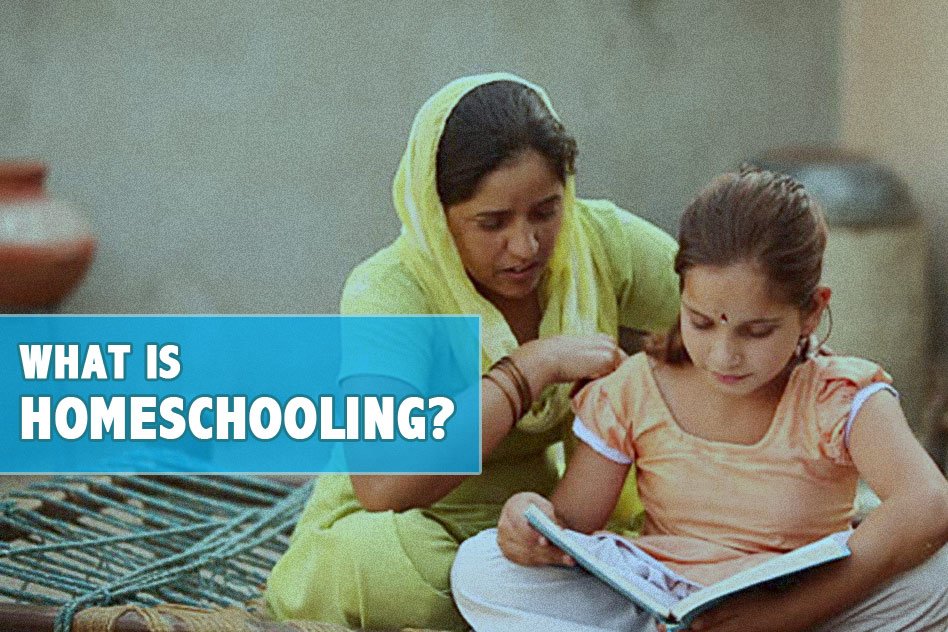
All You Need To Know About Homeschooling, Its Pros And Cons
8 Sep 2016 9:22 AM GMT
We believed, or rather, were conditioned to believe, that learning happens only in a school’s classroom and that there is no alternative to it.
For someone unfamiliar with it, the practice of parents not sending their kids to school to teach them at home might seem odd, especially in India. However, over the past few years, the concept has been gaining popularity in India and has already established itself as a formal way of teaching in many other countries. In USA, for example, there are about 23 lakhs (in 2016) homeschooled children, constituting about 3% (as of 2012) of all children).
The concept is not entirely new even for India. From the early 20th century, some educational theorists discussed and implemented radically different forms of education. Rabindranath Tagore’s Visva-Bharati University, Sri Aurobindo’s International Centre of Education and Mahatma Gandhi’s ideal of “basic education” are some examples.
What is Homeschooling?
Homeschooling (or Home Education) is where the parents impart education to their children at home, rather than sending them to formal traditional schools. A homeschooling atmosphere provides a natural setting in which parents can deliver an individualized method of instruction that matches the child’s unique interests, ability, and learning style.
Why Homeschooling?
Dissatisfaction with the local schools and interest and involvement in their child’s learning and development are the primary motivations for parents to homeschool their children.
Parents’ dissatisfaction with available schools includes:
Concerns about the school environment (bullying, negative influences etc.)
The quality of academic instruction which kills the creativity and uniqueness of the child
Dissatisfaction with the curriculum, where all attention is paid to language, numbers etc. and everything else is termed ‘extra-curricular’ and side-lined
Lack of faith in the school’s ability to cater to their child’s special needs
Some additional reasons are:
To have greater control over what and how their children are taught
To take advantage of the effectiveness of focussed teaching
How Homeschooling is done?
Most parents go for a traditional setting in which the children are taught conventional subjects (Maths, History, Grammar etc.) along with some additional ones based on the child’s interest within a structured schedule created by them. To assist such parents, there are various resources (public library, homeschooling catalogues, retail bookstores etc.) available which allow parents to choose or to even design their own curriculum from different books and materials. They also guide on other important factors like the different learning approaches, the amount of time needed to be devoted etc.
Role of support groups
It is not necessary that in homeschooling, the children are taught by their parents all the time. Parents many times form a home school support group or a Homeschool cooperative where they can take advantage of specialization in different subjects or different skills possessed by different parents. It also gives them an opportunity to arrange field trips and other sporting activities, which increase socialization for the students.
Disadvantages of Homeschooling
- Tremendous time and energy required from the parents to prepare for the lessons.
- Lack of resources like science labs and other materials.
- Non-exposure to the social life found in schools on a daily basis.
- If school culture is balanced, the child can learn a lot more about arts, sports, debates etc. at school than he ever can at home.
How do Homeschooled children perform academically?
There have been at least three different studies (in 1999, 2008 and 2011) which have established the academic excellence of homeschooled children over public school students. In the 1999 and 2008 studies, the homeschooled children outperformed their peers from traditional schools by 30 to 37 percentile points across all subjects. Moreover, the public schools performance gaps between minorities and genders were virtually non-existent among the homeschooled students who took the tests.
Even in India, a homeschooled student secured a Top-100 rank in the coveted IIT entrance exams in 2010.
It is contended that these public school students would have performed equally well as their homeschooled counterparts with the dedicated parents the homeschooled students had and that the differences could be majorly explained based on the individualized attention that the homeschooled children were getting.
Because homeschooling children requires only a fraction of what it takes to teach them in public schools, it is even claimed that homeschooled children will excel much more if equal monetary resources were spent on them too.
Are Homeschooled children sociable?
The claim that homeschooled children were less sociable was disproved in a 2003 study. It found that 71% of adults who were homeschooled were involved in a community service activity as compared to 37% of adults from traditional school background. Moreover, of the former, 58.9% said they are ‘very happy’ with life and 73.2% find life ‘exciting’, while the corresponding figures were 27.6% and 47.3% for the latter, respectively.
Homeschooling in India
The practice still remains confined to some major cities in India and practiced by a significantly small proportion of parents as compared to many other countries. Moreover, the legal environment is still unclear with no formalization of homeschooling, which can makes it mandatory for homeschooled students to enter the formal education system at a future time for pursue higher studies.
 All section
All section













